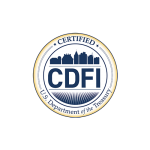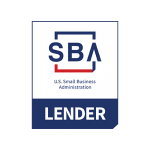
If you have multiple debts, like high-interest credit cards, medical bills or personal loans, you can combine them into one fixed monthly payment through a debt consolidation loan. It help to make a pros and cons list of debt consolidation loans.
Managing multiple credit cards, student loans and auto loans can feel over whelming. It can be difficult to keep track of payments and balances on all the outstanding debts. Consolidating these debts into a single loan may streamline your finances, but unfortunately the strategy won’t lower your overall debt obligation.
A debt consolidation loan or using a balance transfer credit card can make sense if it lowers your annual percentage rate. However, you will need to qualify for a low interest rate, make payments on time and stay out of debt in the future for this strategy to work for you.
Debt consolidation can be a wise financial decision under the right circumstances—but it’s not always your best bet. Be aware of the pros and cons of debt consolidation before committing to a new loan.
To help you decide whether debt consolidation is the right way to pay off your loans, here are some pros and cons of debt consolidation loans.
First What is Debt Consolidation?
Debt consolidation is the process of combining two or more debts into a single larger debt. This kind of loan is sought by consumers who are burdened with a significant amount of high-interest debt.
Consolidation loans are used to combine credit card debts, auto loans, student loans, medical debt or other types of loans into a new loan. Debt is easier to manage because the borrower only has to pay one monthly payment instead of a separate payment for each debt.
In addition to simplifying finances, debt consolidations are favored because they can often provide the borrower with more favorable terms and a lower interest rate.
Some lenders offer specialized debt consolidation loans, you can use most standard personal loans for debt consolidation. Some lenders pay off loans on behalf of the borrower, while others disburse the proceeds so the borrower can make the payments themselves.
With a balance transfer credit card, qualified borrowers typically get access to a 0% introductory APR for a period between six months and two years. The borrower can identify the balances they want to transfer when opening the card or transfer the balances after the provider issues the card.
Is debt consolidation right for you?
Here’s a quick check list:
What is the size of your debt? If you have a small amount of debt you can pay off in a year or less, debt consolidation is likely not worth the fees and credit check associated with a new loan.
Are you planning to improve your finances? While you can’t avoid some debts—like medical loans—others are the result of overspending or other financially dangerous behavior. Before consolidating your debt, evaluate your habits and come up with a plan to get your finances under control. Otherwise, you may end up with even more debt than you had before consolidating.
Is your credit score high enough to qualify for a lower interest rate? If your credit score has increased since taking out your other loans, you’re more likely to qualify for a debt consolidation rate that’s lower than your current rates. This can help you save on interest over the life of the loan.
Does your cash flow comfortably cover your monthly debt service? Only consolidate your debt if you have enough income to cover the new monthly payment. While your overall monthly payment may go down, consolidation is not a good option if you’re currently unable to cover your monthly debt service.
Depending on how you answered, you may be better off consulting a credit counselor at a reputable nonprofit who can help set up a debt management plan, versus trying to tackle it on your own. To help you decide whether debt consolidation is the right way to pay off your loans, check out our pros and cons of debt consolidation loans.

Here’s the Pros of Debt Consolidation
Streamlines Finances
You’ll have just one monthly payment. Instead of keeping track of multiple monthly payments and interest rates, consolidating lets you combine the debt into one payment with a fixed interest rate that won’t change over the life of the loan.
Consolidation can also improve your credit by reducing the chances of making a late payment—or missing a payment entirely. But it’s not just about simplifying your repayments. Consolidating can give you a clear and motivating finish line to being debt-free, especially if you don’t have a debt payoff plan in place.
You might save on interest payments
By applying your savings to your remaining balance, you’ll ultimately shorten the loan’s repayment term, which could save even more money on interest, since you’ll make fewer monthly payments overall.
This strategy has an even bigger payoff with a balance transfer card. Since you won’t be paying any interest during the promotional period, the savings you apply to your balance could be substantial.
Could lower your interest rate
If your credit score has improved since applying for other loans, you may be able to decrease your overall interest rate by consolidating debts—even if you have mostly low-interest loans.
The biggest advantage of debt consolidation is paying off your debt at a lower interest rate, which saves money. For example, if you have $9,000 in total debt with a combined APR of 25% and a combined monthly payment of $500, you’ll pay $2,500 in interest over about two years.
But if you were to take out a debt consolidation loan with a 17% APR and a two-year repayment term, the new monthly payment would be $445, and you would save $820 in interest.
If you qualify for a balance transfer card, you would pay zero interest during the promotional period, which can last up to 21 months. You’ll likely also pay a 3% to 5% balance transfer fee.
May Reduce Monthly Payment
When consolidating debt, your overall monthly payment is likely to decrease because future payments are spread out over a new and, perhaps extended, loan term. While this can be advantageous from a monthly budgeting standpoint, it means that you could pay more over the life of the loan, even with a lower interest rate.
Can Improve Credit Score
Applying for a new form of credit requires a hard credit inquiry, which can temporarily lower your score by a few points. However, debt consolidation can also improve your score in a number of ways. For example, paying off revolving lines of credit, like credit cards, can reduce the credit utilization rate reflected in your credit report.
Ideally, your utilization rate should be under 30%, and consolidating debt responsibly can help you accomplish that. Making consistent, on-time payments—and, ultimately, paying off the loan—can also improve your score over time.
Here’s the cons of debt consolidation
A debt consolidation loan or balance transfer credit card may seem like a good way to streamline debt payoff. That said, there are some real disadvantages associated with this strategy.
You may not qualify for a low rate.
Balance transfer cards can be hard to qualify for and typically require good to excellent credit (690 or higher on the FICO scale).
Debt consolidation loans are more accessible. These loans are tailored to bad-credit applicants (629 or lower on the FICO scale). But borrowers with the highest scores usually receive the lowest rates.
Loans may come with added costs
Taking out a debt consolidation loan may involve additional fees like origination fees, balance transfer fees, closing costs and annual fees. When shopping for a lender, make sure you understand the true cost of each debt consolidation loan before signing on the dotted line.
You could end up in a worse position. If you miss payments toward the new debt, you could end up in a worse position than when you started. For example, if you fail to pay off your balance transfer card within the zero-interest promotional period, you’ll be stuck paying it at a higher APR — potentially higher than the original debt.
If you fall behind on a consolidation loan, you could rack up late fees, and the missed payments would be reported to the credit bureaus, jeopardizing your credit scores. Before consolidating, make sure the new monthly payment fits comfortably in your budget for the entirety of the repayment period.
Could Raise Your Interest Rate
If you qualify for a lower interest rate, debt consolidation can be a smart decision. However, if your credit score isn’t high enough to access the most competitive rates, you may be stuck with a rate that’s higher than on your current debts. This may mean paying origination fees, plus more in interest over the life of the loan.
You Could Pay More Interest Over Time
Even if your interest rate goes down when consolidating, you could still pay more in interest over the life of the new loan. When you consolidate debt, the repayment timeline starts from day one and may extend as long as seven years. Your overall monthly payment may be lower than you’re used to, but interest will accrue for a longer period of time.
To sidestep this issue, budget for monthly payments that exceed the minimum loan payment. This way, you can take advantage of the benefits of a debt consolidation loan while avoiding the added interest.

It doesn’t solve underlying financial issues
Consolidating debt can simplify payments but it doesn’t address any underlying financial habits that led to those debts in the first place. In fact, many borrowers who take advantage of debt consolidation find themselves in deeper debt because they didn’t curb their spending and continued to build debt. So, if you’re considering debt consolidation to pay off multiple maxed-out credit cards, first take time to develop healthy financial habits.
May encourage increased spending
Similarly, paying off credit cards and other lines of credit with a debt consolidation loan may create the illusion of having more money than you actually have. It’s easy for borrowers to fall into the trap of paying off debts, only to find their balances have climbed once again.
Make a budget to reduce spending and stay on top of payments so you don’t end up racking up more debt than you started with.
Conclusion
Be careful when considering a debt consolidation loan. If you struggle with overspending, consolidation could be a risky choice. By taking out a loan to pay off credit cards, for example, those cards will have a zero balance again. You might be tempted to use them before the new debt is paid off, digging you into an even deeper hole.
If you have too much debt, you may be better off consulting a credit counselor at a reputable nonprofit who can help set up a debt management plan, versus trying to tackle it on your own. To help you decide whether debt consolidation is the right way to pay off your loans, make a pros and cons list of debt consolidation loans.





